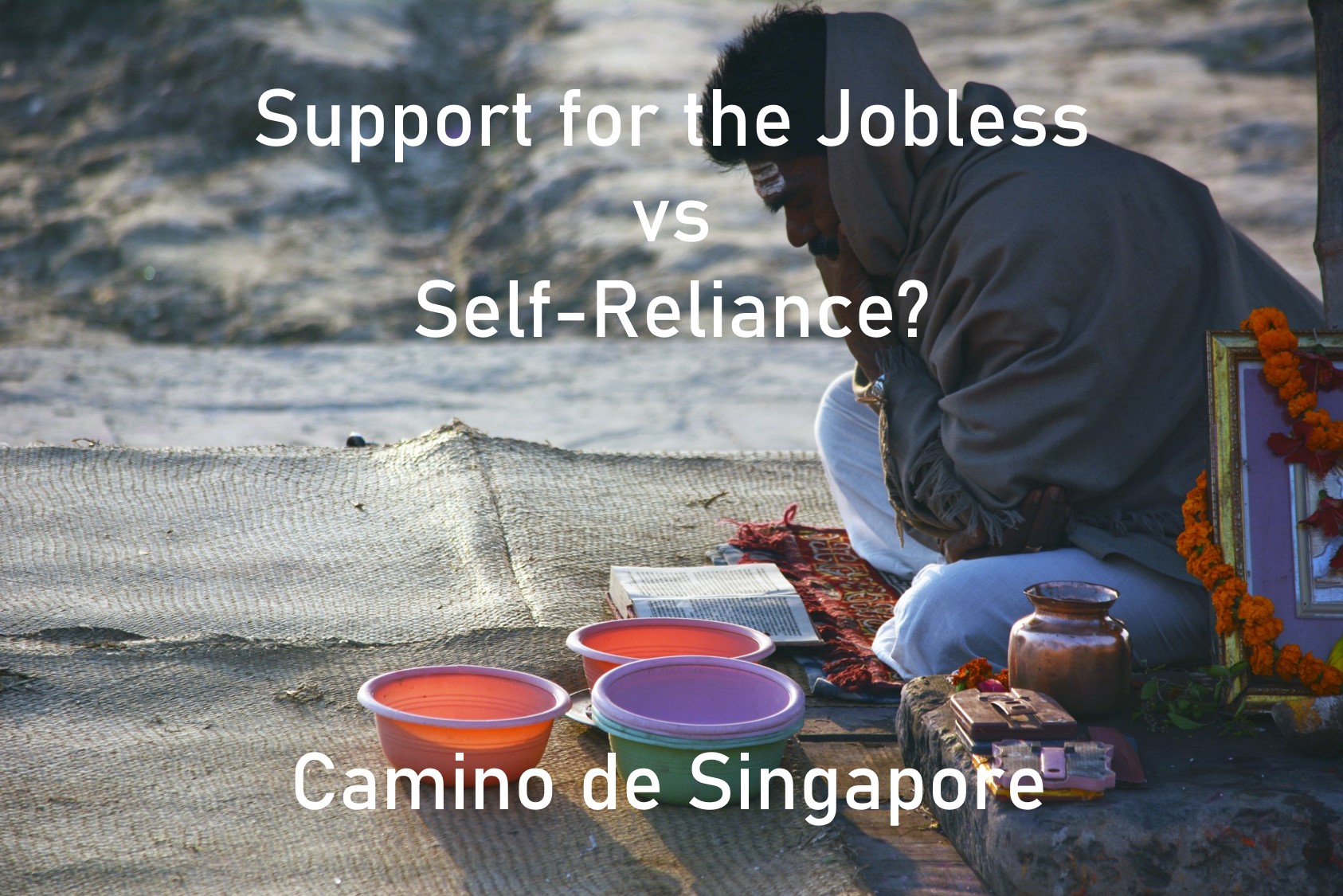No products in the cart.

In this time of economic uncertainty and rising inequality, the government recently announced a plan to introduce unemployment benefits, especially for retrenched workers. Previously, the idea of unemployment benefit never gained serious traction. There is a widespread narrative that Singaporeans are self-reliant, and we should avoid policies that might discourage hard work. We have always been averse to the idea of the “welfare state”. While we cannot comment on this scheme until more is announced, we can consider how our Catholic faith can inform our perspective.
To set the context, we need to begin by looking at the currently prevailing narrative. Many terms have been used to encapsulate the idea of self-reliance in Singapore. We often heard that Singapore embraces meritocracy, i.e., those who work hard will be rewarded proportionate to their effort. Some would say that Singaporeans have an immigrant work ethic; many Singaporeans are descended from migrants who came here and worked hard to make a place for themselves. However we describe it, the general idea is clear. Hard work is essential to success and anything that might discourage it is anathema. In fact, this conviction is so strong that mentions about unemployment benefits are often accompanied by a nod to the worries for abuse. When it was announced, I have heard friends who warn that such policies will promote the laziness and abuses seen in some Western countries. One young friend simply exclaimed, “For what!”
Implementing unemployment benefits, therefore, amounts to a reversal from previous stance. The Deputy Prime Minister explained that the “faster pace of change and churn in our economy” was the reason that the government “revised and refreshed” how they think about supporting the unemployed. An analyst commented that the change in thinking was probably triggered by the recent wave of retrenchment caused by uncontrollable societal and technological changes rather than poor performance. (It is reasonable here to ask if most layoffs in the past were due to factors that workers could control.)
The Catholic social teaching tradition, meanwhile, looks at this question from a completely different angle. We can turn to an influential encyclical written on human labour, Laborem exercens, which was promulgated by Pope St John Paul II. Here, the dignity of the human person is the foundation of how work and policies for workers should considered. So when the Church considers whether unemployed persons should be given support by the state, it is not primarily concerned with potential for abuse, risk of promoting laziness or whose fault leads to the unemployment, even if they are important and should certainly be regarded when designing policies. Instead, the Church is first and foremost concerned that the dignity of the person needs to be protected with rights, including the right to life and subsistence. This means that the unemployed person, whatever the circumstances that lead to their loss of work, must be given the support necessary to live with dignity. This dignity is inalienable by virtue of every person being made in the image of God. Nothing can remove it.
The implication of this teaching is vast. For policies, the Church affirms unemployment benefits in principle as long as the implementation is prudent and equitable. The Church’s teaching also challenges us to rethink what self-reliance means. It is certainly important to encourage everyone who is able to work. But we should recognise that the risk of abuse and encouraging laziness, which can be managed by good planning, is far less important than ensuring that every unemployed person can sustain themselves and their family. For us, this means that we have a shared responsibility to help unemployed persons flourish. We can contribute to charities, participate in community initiatives, help pass down skills and assign higher importance to hiring unemployed persons.
A final point to consider: A recent large study showed that giving cash support to impoverished communities in Kenya resulted in improved economic situation in the communities because many used the money to start new businesses, so they could have a better future. If we are not afraid to give the poor and vulnerable the support they need to flourish, as the Church urges us to, perhaps we will be surprised by how people can lift themselves out of poverty.
Related News
Erwin Susanto is a staff member of Caritas Singapore. He enjoys arcane conversations on the Old Testament/Hebrew Bible in the context of the Ancient Near East. He enjoys thinking about all sorts of contemporary issues and often wonders if punditry is fun.
